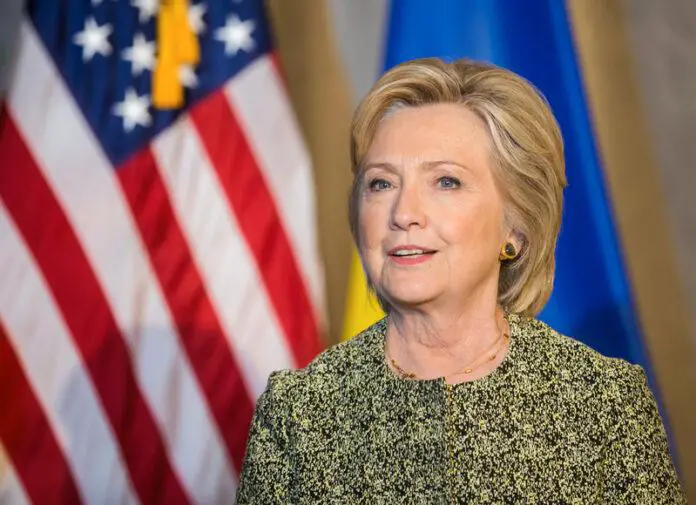Former First Lady and Secretary of State Hillary Clinton has defended and expanded upon her controversial “basket of deplorables” comment from the 2016 presidential campaign, suggesting that the term may have been too lenient for some supporters of former President Donald Trump.
In a recent op-ed for The Washington Post, titled “To err is human, to empathize is superhuman,” the former Democratic presidential nominee reflected on her struggle to empathize with individuals she views as radicalized. Clinton revisited her infamous “basket of deplorables” remark, which caused significant backlash during her 2016 campaign against Trump.
“In 2016, I famously described half of Trump’s supporters as ‘the basket of deplorables.’ I was talking about the people who are drawn to his racism, sexism, homophobia, xenophobia, Islamophobia — you name it,” Clinton wrote. She acknowledged that her choice of words was “unfortunate” and constituted “bad politics,” but maintained that it “got at an important truth.”
Clinton pointed to events that have transpired since her 2016 campaign to support her assertion. “Just look at everything that has happened in the years since, from Charlottesville to Jan. 6,” she wrote, referencing the 2017 white supremacist rally in Charlottesville, Virginia and the January 6, 2021, attack on the U.S. Capitol.
The former presidential candidate went further, stating, “The masks have come off, and if anything, ‘deplorable’ is too kind a word for the hate and violent extremism we’ve seen from some Trump supporters.”
Despite doubling down on her criticism, Clinton also expressed a desire for a more empathetic approach. She recounted her interaction with Shannon Foley, a former white supremacist who now works to deprogram and rehabilitate individuals leaving hate groups. Clinton marveled at Foley’s ability to empathize with “even the most (yes, let’s say it) deplorable bigots.”
This experience led Clinton to ponder whether such an empathetic approach could offer lessons for healing the nation’s political divisions.
Clinton’s original “deplorables” comment, made at a fundraiser in September 2016, sparked immediate controversy. At the time, she said, “You know, to just be grossly generalistic, you could put half of Trump’s supporters into what I call the basket of deplorables. Right? The racist, sexist, homophobic, xenophobic, Islamaphobic — you name it. And unfortunately there are people like that. And he has lifted them up.”
The day after making those remarks, Clinton expressed regret for using the word “half” but stood by her criticism of Trump. “I regret saying ‘half’ – that was wrong,” she said. “But let’s be clear, what’s really ‘deplorable’ is that Donald Trump hired a major advocate for the so-called ‘alt-right’ movement to run his campaign and that David Duke and other white supremacists see him as a champion of their values.”
The “deplorables” comment became a rallying cry for Trump supporters during the 2016 campaign, with many proudly adopting the label. Some political analysts have suggested that the remark may have contributed to Clinton’s electoral defeat by alienating potential voters.
In her recent op-ed, Clinton grappled with the tension between her belief in the objective truth of her statement and her desire for a more unifying approach. “Talking about the ‘deplorables’ in 2016, I said, ‘Some of those folks, they are irredeemable.’ Part of me would still say this is objectively true,” she wrote. “Just look at the lack of remorse from many of the Jan. 6 insurrectionists who’ve been convicted of sedition and other crimes. But another part of me wants to believe something else. I’d like to believe there’s goodness in everyone and a chance at redemption, no matter how remote.”
Clinton’s recent comments have reignited debate about political polarization in the United States and the challenges of bridging deep ideological divides. While some view her remarks as a necessary acknowledgment of extremism, others argue that such characterizations may further entrench political animosities.

